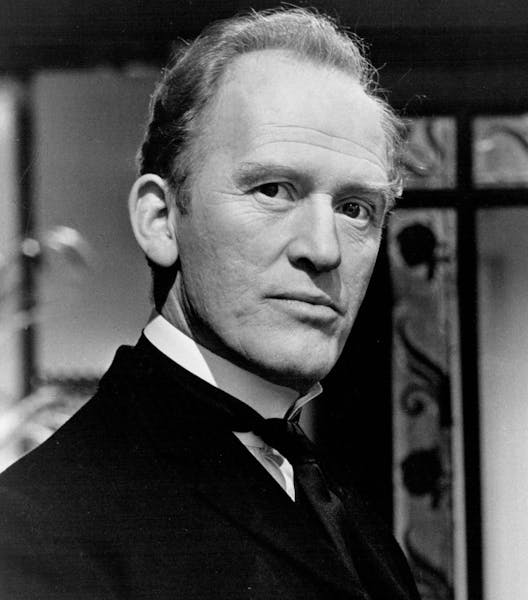In the fading hours of 1925, the Siskel and Ebert of "Downton Abbey" table their bickering long enough to ring in the new year.
"We're going forward to the future, not back to the past," chirps Isobel Crawley, raising a glass to her bosom buddy.
The Dowager sniffs back: "As if we had a choice!"
If that exchange from Sunday's episode doesn't provide a bright enough signal that time stands still for no one on the Yorkshire country estate — and that this is the final installment of the most popular series in PBS history — perhaps these excerpts will do the trick:
"If there are changes to be made, we mustn't be afraid to make them."
"The more adaptable we are, the more likely we are to get through."
"Bother! Parting is such sweet sorrow. But stick around. New episodes of 'Sherlock' to come!"
OK, I made the last one up, but the line wouldn't seem terribly out of place in creator Julian Fellowes' dialogue, which has leaned heavily on clichés since the manor's doors opened in 2010. (The exception: Maggie Smith's Dowager, whose ways with a put-down suggest she may be Don Rickles' great-grandmother.)
Character and plot haven't turned out to be Fellowes' strengths, either.
When the show arrived stateside in 2011, I wrote that it offered more twists and turns, backstabbing and heroics in its initial four installments than you'd find in a full season of "NCIS." I heaped so much praise on the second season, set during World War I, when the mansion was transformed into the waiting room at Seattle Grace hospital, you would have thought I was on the payroll for rural England's tourism department.
But around the fourth season, I started to lose interest. I suspect Fellowes did, too.
Watching Mr. Bates and his wife, Anna, face one murder charge after another became a running joke. Mary's courtship of potential suitors quickly turned into a dismal cycle of "The Bachelorette." Torturing poor Edith became so mean-spirited that a stint in Guantanamo Bay began to look like sweet charity.
It's not giving too much away to reveal that Edith finds happiness in Sunday's episode — as does just about everybody else in the series, with the exception of the family dog, who had the misfortune of being named Isis.
Fellowes seems determined not to upset the crumpet cart. A fatal disease turns out to be just a cough. Mary does a good deed. Robert Crawley settles into retirement like a snowbird who has just mastered the art of shuffleboard. Even duplicitous footman Mr. Barrow turns out not to be such a bad bloke, after all.
In the end, Fellowes was less interested in people than in gadgets. It wasn't until the finale that I noticed the opening credits have never featured any faces, only inanimate objects — a copper pot, a dusty chandelier — that will begrudgingly make way for modern contraptions such as hair dryers and electricity.
The show's most fascinating and complex character turned out to be the automobile. Yes, wheels brought together progressive Sybil and chauffeur Tom Branson, the series' most likable human. They also led to the death of Mary's first husband.
It's only fitting, then, that a car plays a pivotal role in the finale, one last reminder that it's time to put the horses out to pasture.
In the end, what appeared to be a feast turned out to be an afternoon tea. The routine will be missed, but one wonders just how much more memorable the weekly gathering would have been if Fellowes had spiked the pot with a bit more brandy.
The real downer isn't that "Abbey" is shutting the doors; it's that new episodes of "Sherlock" aren't expected until January of next year.
Bother!
njustin@startribune.com
612-673-7431 • Twitter: @nealjustin

Critics' picks: The 12 best things to do and see in the Twin Cities this week
Streetscapes

6 new foods worth trying at a Timberwolves game

The pandemic made writer Kate DiCamillo realize, 'I'm not going to get through this unless I have a fairy tale to write'

